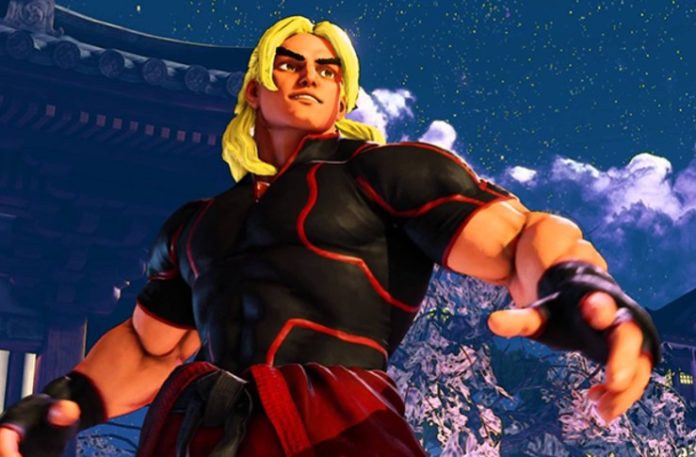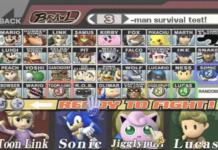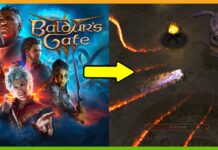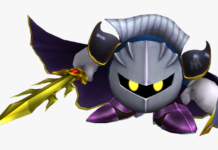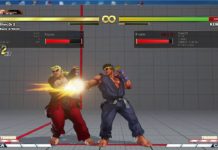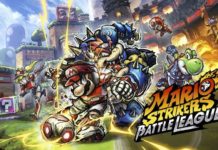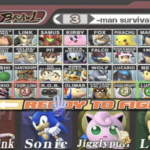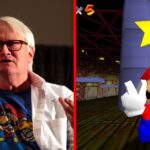Since he entered the competitive Street Fighter scene nearly a decade ago, Chris “Chris T” Tatarian has been a force to be reckoned with.
Originally starting out in Street Fighter IV in 2011, he quickly became one of the best Ken players in the world, and he held this status when transferring over to Street Fighter V in 2016. His relentless grind at local and major Street Fighter tournaments has led him to being a Capcom Cup finalist twice, as well as a consistent presence in the top of the North American CPT Leaderboards.
He has also signed with various organizations throughout his career, including Evil Bizz Gaming, Denial eSports and Cygames Beast, before most recently signing with the talent agency Ford Models.
We got to ask Chris T a few questions about his career and his thoughts on the esports profession, and he provided a tremendous amount of insight into the industry. Give it a read!
—
Let’s start with the basics: what got you into Street Fighter, and more specifically, what got you into competing in Street Fighter tournaments?
Chris T: Street Fighter has always been a part of my life since early childhood. I was introduced to Street Fighter II at a very young age and it always seemed cool to me; but, it wasn’t until eighth grade when the release of the latest Street Fighter, Street Fighter IV, caught my attention. I ended up purchasing the game and instantly craving more of it.
I eventually stumbled upon EVO 2009 being streamed on JustinTV and I watched the entire tournament. I saw legendary Daigo “The Beast” Umehara win the championship and I was hooked. At that moment, I thought to myself, “You can do this too, you could be a champion.”
That was the catalyst in me wanting to join local and major tournaments and the rest is history!
You began going to tournaments with Street Fighter IV in 2012; what was the scene like when you first joined? How did the game and the scene change for those four years before Street Fighter V was released?
Chris T: I first began competing in 2011. At that time, the scene was very underground, very unfiltered, and very real. The arcade environment was unique, as everybody used to talk a lot, and I mean A LOT of smack to your face and most of the time it was while you were in the middle of competing. The interactions were all part of the culture that you accepted and learned how to play with. The banter also made for better pop offs when you won the match. For the most part, the community kept it real and friendly, and it became an important escape for me from school and life. It provided me with the opportunity to just hang out with my friends, play video games and earn a reputation as one of the best to do it.
Today, the scene and community is a complete 180 from where it was before SFV arrived. I think the scene has taken tremendous steps in making sure people feel safe when attending tournaments by taking the right type of precautions before we enter a venue. I think the scene has moved in the right direction of growth, meaning the overall competition nowadays is a lot harder than it was previous as there is so much information on YouTube about players, characters, and so on. The Capcom Pro Tour season itself allows the strongest players from around the world to compete against each other.
I think most top players would agree with me when I say that the goal of SFV was to bring in a lot of new players which it did, but it was at the cost of making the game a lot more friendly to beginners. I felt that the new game removed a lot of the integrity and freedom of expressing your own unique playstyle. The scene has also grown to be a lot more sensitive, which is something I personally dislike, because when I entered the scene it was a lot more raw and edgy than it is now.
When Street Fighter V was released, there were mixed feelings among veterans of the community. What were your initial thoughts on the game, and how do you feel about it now all these years later?
Chris T: My initial thoughts on SFV (alongside almost every other top player) was that the title needed a lot of work, both mechanically and net code wise. Usually, the “vanilla” version of a fighting game is generally the worst version of it because the developers are testing what the audience likes, and are waiting for the proper feedback to make the game better with updates.
Today, the game is sitting at a much better place for a lot of us; the game has slowed down quite a bit in comparison to the 2016 version, which is a good thing. It has added some new mechanics in the game which makes it a little more fun as well.
The online, however, still needs work. Typically, practicing online is the only way that a competitor can really train against the other strong players across the country, but when there is so much rollback and lag, you’re not able to play the game anymore, which hinders your ability during practice.
I believe the previous Street Fighter titles were better overall games and more fun to play than SFV, so I’m hoping that Street Fighter 6 is a little more like the previous titles in terms of gameplay.
Fighting games are incredibly difficult to learn; matchups and frame data aside, it’s a long road to learn fundamentals, as well as concepts such as footsies, zoning, etc. How did you go about practicing and learning the game when you were first coming up in the scene?
Chris T: I practiced every day. I realized how difficult the game was very quickly, so I didn’t waste any time; I would come home from school and immediately start playing for 6-8 hours each day, while also working on my homework. That was the only way to get better. I tried to study as many top Japanese players as I could via YouTube, play online against other top players, and lab in training mode.
I was extremely devoted and put in countless hours of studying the game mechanics and mental aspects of competing to get to where I am now.
A harder thing to learn is how to deal with tournament nerves; you can lab and play online all you want, but it won’t necessarily prepare you for that big moment in an in-person tournament. As someone who’s been on the biggest stage, how do you maintain composure in high-pressure situations?
Chris T: I honestly believe that the answer comes down to preparation and experience. Preparation because the tournaments where I was the most prepared, I felt the most confidence. I handled pressure better when I was prepared in every way possible for my opponent.
I think nerves will always be there because of how much effort and care you put into your work, so it’s very normal to get nervous; this is why I mention gaining experience. The more experience you have of being on the big stage, the better you get at handling those nerves. I’m a firm believer in: “You have to lose in order to learn and win”.
With COVID-19 suspending in-person tournaments for the time being, how have you adapted to the lack of events?
Chris T: Honestly. the lack of in-person tournaments has affected my overall drive to play as much because there aren’t tournaments to compete in anymore; there is no real need to grind as heavily anymore. It is nice to take a little mental break this year and get ready for the next installment.
As a top player and Twitch Partner, it must be tough managing the pressures of getting results and growing your stream while the thoughts of sponsorships looms in the background. What are some of the struggles about being a professional esports athlete that most fans might not realize?
Chris T: This is a question that I could write a novel in; the amount of misinformation that is spewed in the esports world unfortunately gets accepted by a lot of people wanting to get involved in professional gaming. To the outsider, not everything is what it seems.
To be successful, it takes time, money, sponsorships, building your individual “brand” and stream, achieving success, winning, having a unique personality as well as the ability to negotiate and willingness to travel. The list goes on. To be successful, you have to work extremely hard to understand and excel at the things that I mentioned above and to overcome a lot of the adversity that comes with it.
However, it’s not all bad, as I wouldn’t have been able to land such a great management team in Ford Models and continue pursuing my career in the field. The team has been inviting, has truly treated me like a friend and ensured that everything is always transparent with me. Transparency in the industry is important, as in the community, there are too many grey areas that you must maneuver around. Having proper guidance is essential to navigate these paths.
What are your plans for the future as we continue to navigate through this pandemic?
Chris T: I’m currently working on many different projects. I still practice Street Fighter almost daily, but my focus has been shifting towards music and entertainment as of late. I will always compete, but I’ve found more interests outside of gaming that make me truly happy.
Finally, with the recent wave of sexual misconduct and harassment in streaming and various competitive communities, what role do you think public figures and organizations have in setting a better example for the future? What do you think needs to be done to create as welcoming and safe a community as possible?
Chris T: I think that public figures and organizations can continue to step up and provide the proper ramifications if a player or organization is found to be guilty of such misconduct. Any allegations of misconduct should also call for a serious investigation, that way any party involved can be assured that due process will be done, and justice will be served. This would honestly help make all gaming communities a much safer place for people to attend.
I’ve attended tournaments for many different games for over 10 years of my life and, from my experience, I can tell you that there are a lot more good people in the community that just want to play games and have fun with friends than bad people who are trying to hurt someone.
(Questions and answers have been edited for clarity.)
Be sure to follow Chris T on Twitter, Instagram, Twitch and YouTube!


